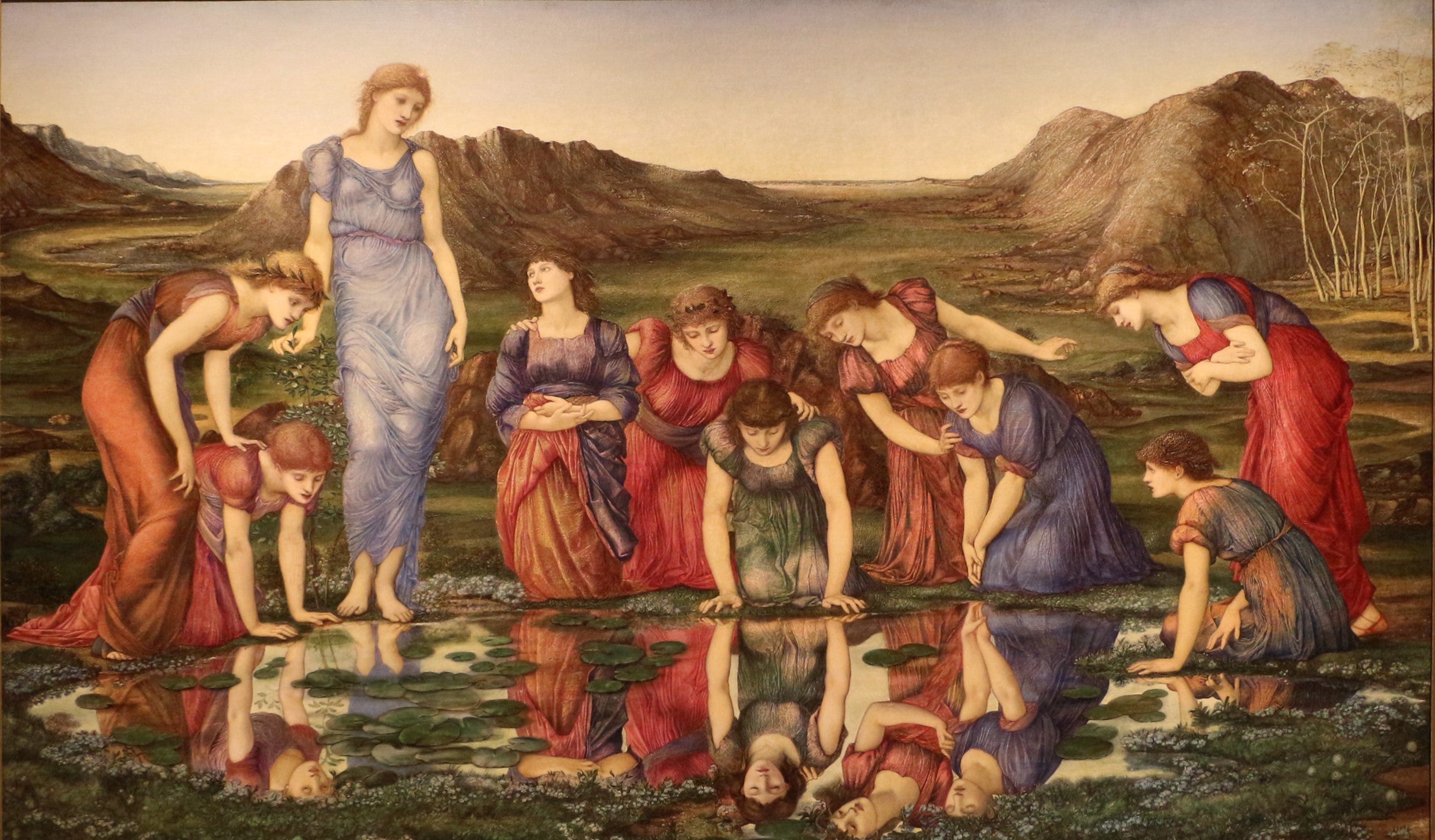Description
The painting The Mirror of Venus by artist Edward Burne-Jones is a masterpiece of the art style known as Pre-Raphaelite. This artistic current emerged in England in the mid-19th century and was characterized by a return to the aesthetic and moral values of the time before Raphael, the famous Italian Renaissance painter.
The composition of the work is impressive. Burne-Jones depicts Venus, the goddess of love and beauty, seated on a white marble throne with a mirror in her hand. Around her, there is a group of nymphs and putti who adore and venerate her. The figure of Venus is slender and beautiful, with a serene and calm expression on her face.
Color is another interesting aspect of painting. Burne-Jones uses a palette of soft, delicate shades, evoking the feeling of a dreamy, fantasy world. The nymphs are dressed in pale pink, while the putti are naked and have golden-hued skin.
The history of the painting is also fascinating. Burne-Jones began work on it in 1867 and finished it in 1870. It was commissioned by businessman and art collector Alexander Constantine Ionides, who bought it for £500. Since then, it has passed through different owners and has been exhibited in various exhibitions and museums.
Finally, there are little-known aspects of the painting that make it even more interesting. For example, Burne-Jones is said to have used his wife Georgiana as a model for Venus. Furthermore, it is known that the figure of the putti to the left of Venus was added later, as the artist was not satisfied with the original composition.
All in all, The Mirror of Venus is a stunning work of art that blends aesthetic beauty with classical mythology and art history. Its artistic style, composition, color, and history make it one of the most interesting and enigmatic paintings of the Victorian era.






